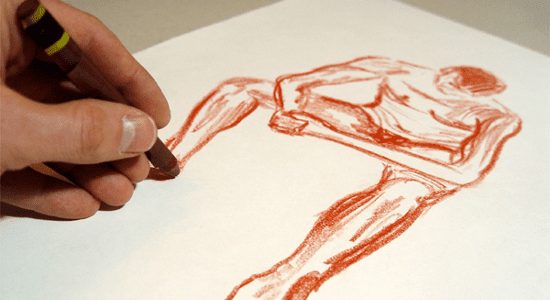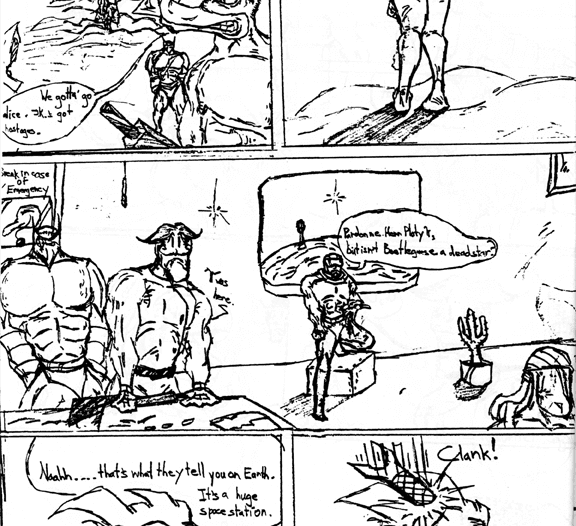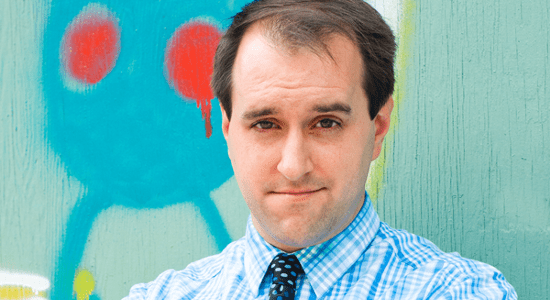Find a comic book you really like, and select a page or two. Write what happens on the page (or pages) in plain text. Ask a fellow comic illustrator to do the same with a comic he or she likes. Now trade your written descriptions. Draw your friend’s description. This exercise, while it may seem fruitless, is perfect for improving your storytelling abilities. You’re interpreting someone else’s words. And what’s better, you can compare your work at the end to another version of that same written description. Not only will it serve as drawing practice, it forces you to analyze someone else’s drawing as well, so you can see how another artist solved the same drawing problems and handled the same material.
Evan Munday
Captain Platy Pi and the Reality Splicers
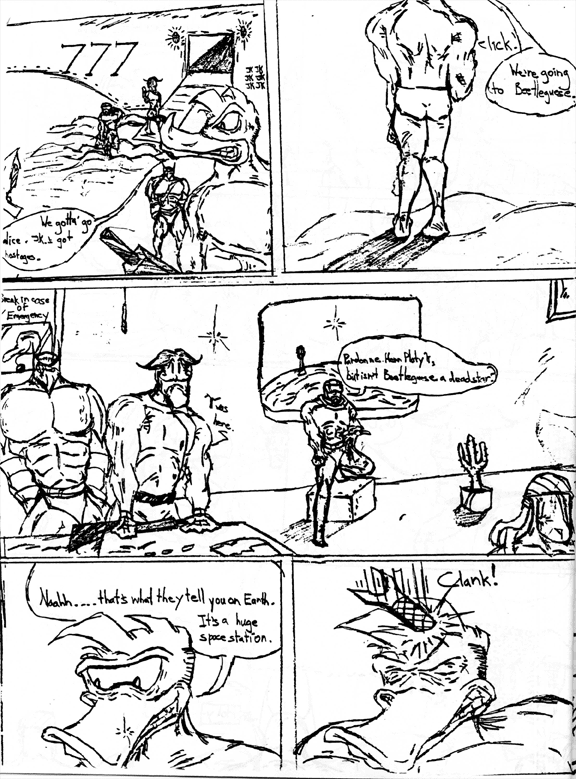
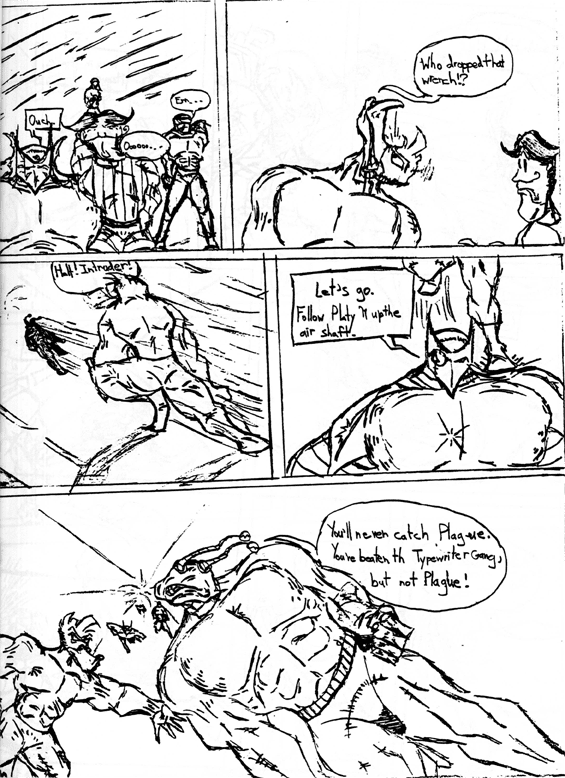
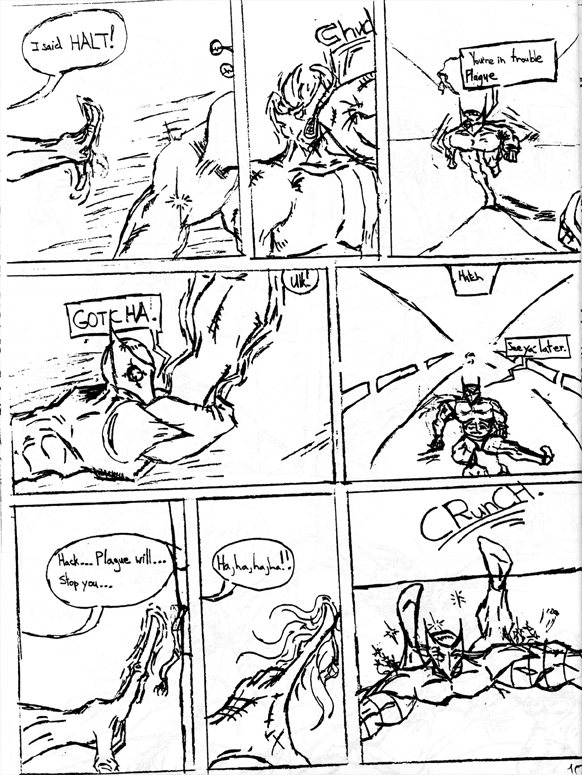
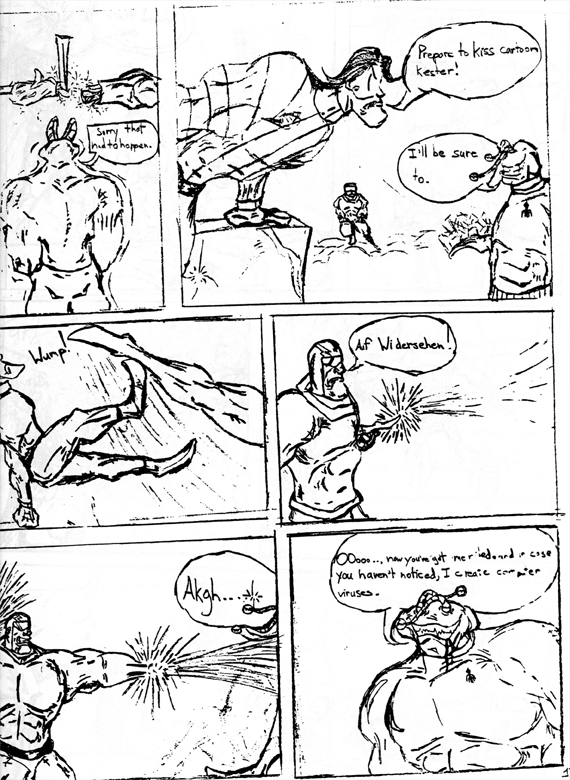
Author of the Month: Evan Munday
Tell us about yourself.
I am the publicist for Toronto-based publisher Coach House Books. I’m also the author of The Dead Kid Detective Agency, the first book in a juvenile fiction series published by ECW Press. I also make comic books, one of my ongoing projects is about a post-apocalyptic Toronto called Quarter-Life Crisis. And when I have some spare time, I watch only the finest terrible movies.
When did you realize you had a passion for writing?
I think I figured it out around seventh grade. In English class, we’d have to write sentences to demonstrate our understanding of vocabulary words. My sentences grew more elaborate and deranged (frankly) by the week. Eventually, they became full short stories, several pages long that incorporated the vocabulary words somewhere along the line. In retrospect, I wonder if my English teacher disliked me.
What pieces of writing/authors have had the greatest impact on you?
My comic book series Quarter-Life Crisis was hugely influenced by Bryan Lee O’Malley’s Scott Pilgrim series. I often describe the book as Scott Pilgrim meets Mad Max: succinct and accurate. And The Dead Kid Detective Agency has its roots in the children’s mystery novels of John Bellairs, James Robinson and Paul Smith’s short-lived comic series Leave it to Chance, and the television show Veronica Mars.
That said, I can’t figure out how some of my favourite authors and comic artists have influenced my work. Not in any discernible way anyway. I love Stephen Crane, Michael Chabon, Joe Meno, Kate Beaton—but can I see their work in my own? Not as clearly.
How and when do you find time to write?
I don’t know. If you have any suggestions, I’d love to hear them! I work full-time and as a book publicist, spend many evenings at book launches and readings, so when I write and draw, it’s usually very late at night or on the weekends. Occasionally, I can take a few days off in the winter or summer when the pace of book publicity slows down a bit. Evenings is usually when I write, though. I’m much more of a night person than a morning person, and I’ll sometimes pull all-nighters to finish work. I thought I’d be done with all-nighters after university, but I was very mistaken.
What have been some of the biggest challenges you’ve faced as a writer?
Time is one of the biggest challenges. Writing (or writing well) can take a long time; making comics, even more so. Finding the time to actually write and draw can be difficult, especially when, say, sleeping is so much more enjoyable. I’ve also found that whatever I do, I try to skirt the line between writing for children and writing for adults. My comic books are for adults, but there’s no real reason why kids wouldn’t enjoy them too (I hope). And my children’s novels are also written with adult readers in mind. But making novels or comics that are satisfying to both age groups can be a weird challenge, as you attempt to see how far you can push things without censoring yourself.
How have you changed as a writer over the years?
I used to write and make comics with a definite point or goal or theme in mind. The theme came first and everything I wrote was to help define and augment that point. Almost like writing an essay in the form of fiction. Gradually, that’s changed, so that I now just try to write a good story. After a couple drafts, I then figure out what themes I’ve been grappling with (subconsciously) and work to pull them out a bit. With the second book of Quarter-Life Crisis (which I’m currently working on), there was about a year between first writing the script and me figuring out what idea the story was engaging in.

